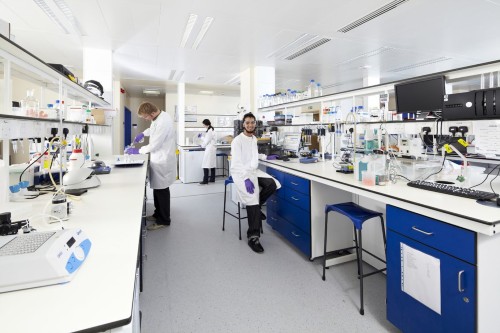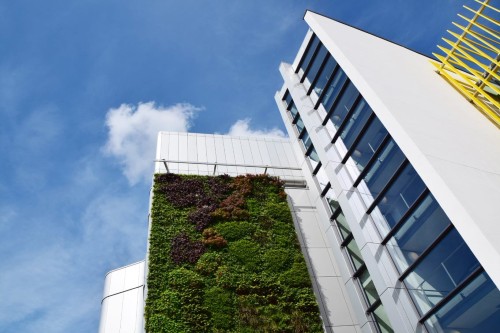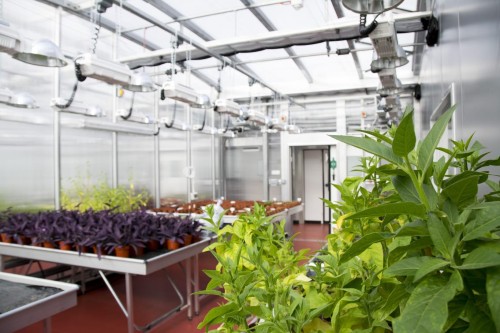Each of their 990 laboratories have gained certification, through The LaboratoryEfficiency Assessment Framework (LEAF) Programme which mobilised staff and students and the wider STEM community to consider the direct impact of research, rather than the broader benefits of research outputs.
Laboratories are essential workspaces for science research and learning but they have five times more environmental impact compared to office spaces. At the University of Bristol, laboratories occupy only 6% of the university’s space but account for 40% of the energy usage. LEAF reduces the environmental impact of laboratories by promoting actions that save water, plastic, energy and other resources through better waste management, equipment efficiency, chemical management and procurement. In addition to criteria that cover environmental aspects, there are also those that consider business travel and research quality, addressing important issues around what’s known as the ‘reproducibility crisis’.
With the help of integrated calculators, laboratories can also determine their financial and carbon savings following the implementation of LEAF. Depending on the criteria completed, laboratories are awarded a bronze, silver or gold certification. Benefits of gaining Green Lab certification include reduced utility costs and environmental footprint, increased research efficiency, chances of gaining additional research funding and enabling a bottom-up sustainability movement.
Anna Lewis, Sustainable Science Manager at the University of Bristol, said: “The university is very proud to announce that it has achieved its goal of institutional Green Lab certification and has certified 100% of its STEM laboratories. It has been no easy endeavour, but we are delighted by this accomplishment.
“Following the Climate Emergency declaration in 2019, sustainability has been at the forefront of the university’s agenda.
“In total, 990 lab spaces were certified which covers an area of approximately 37,000m2. This would not have been possible without close collaboration with technical staff and lab users so we would like to express our most sincere gratitude for their efforts. Demonstrating our Technician’s Commitment, LEAF illustrates the skill and dedication of our technical staff who coordinated the initiative within each of their Schools.”
The innovative Green Lab certification tool was developed by University College London (UCL) to improve the sustainability and efficiency of laboratories. LEAF plays an important role in supporting the university’s commitment to net-zero by 2030 by reducing carbon emissions associated with laboratory-based activities.
She added: “There are clear environmental and financial benefits in choosing to be more sustainable in laboratories. Adopting more sustainable practices can fundamentally change institutions to become more environmentally friendly and we think our success with LEAF is a great example. We are in the midst of a Climate Emergency, so sustainability has never been more important or prominent than it is now. Having said this, we all have the power as individuals to make kinder and greener choices for the planet – whether that be inside or outside the lab. The journey towards institutional Green Lab certification has reminded us how sustainability-minded the university’s STEM community is and we are incredibly excited for more Sustainable Science and future Green Labs plans.”
LEAF 2021, an updated version of the LEAF certification, has recently been launched and staff plan to utilise it to continue reducing the environmental impact of laboratories going forward.


